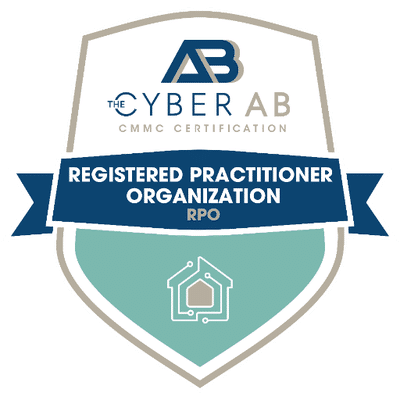Navigating the Hosting Certification Framework (HCF) is essential for hosting service providers, especially those working with Australian government agencies. If you’re looking to comply with high security and privacy standards, 38North Security breaks down HCF’s role, requirements, and corresponding provider responsibilities without the fluff.
Key Takeaways
- The Hosting Certification Framework (HCF) sets mandatory requirements for hosting services for Australian Government data, including stringent security measures, data separation, and customer due diligence, backed by the Australian Cyber Security Centre.
- Cloud service providers must align with HCF standards and manage third-party risks, ensuring data protection across data centers. Compliance includes regular security updates and certification through programs like the cloud services certification program.
- Continuous compliance with HCF standards is essential, requiring regular internal and external audits, as well as adherence to evolving guidelines to maintain the certification and assure the security of government data and systems.

Understanding the Hosting Certification Framework (HCF)
The HCF, an evolution of the Whole-of-Government Hosting Strategy launched in March 2019, provides policy guidance to government-hosting ecosystems, including data centers and infrastructure. It operationalizes the principles outlined in the Australian Government’s Whole-of-Government Hosting Strategy, delivering significant benefits to government and industry.
The framework, endorsed by the Australian Cyber Security Centre, a part of the Australian Signals Directorate, applies to all service providers delivering hosting services to Australian Government customers, including data centers and cloud service providers.
Learn more: The Australian Signals Directorate, an Overview
The Role of HCF in Government Data Security
The HCF is pivotal in guiding government departments and agencies in sourcing hosting services that meet enhanced privacy, sovereignty, and security requirements. It serves as a benchmark for the security of hosting services, assuring the security of sensitive government data.
Requirements for Hosting Providers Under the HCF
Hosting providers must meet the following requirements under the HCF:
- Stringent security, personnel, and ownership requirements
- Rigorous data separation and security between government and non-government data within the same facility
- Thorough customer due diligence
They are also required to demonstrate ownership and control structures that are aligned with the Commonwealth’s interests, in consultation with government and industry representatives.
The Relationship Between HCF and IRAP Assessments
The HCF and Infosec Registered Assessors Program (IRAP) assessments work in unison to maximize the security of Australian government data, including conducting a thorough security assessment. Both apply the Australian Protective Security Policy Framework (PSPF) and the Information Security Manual (ISM) as foundational standards for ensuring high levels of data security. The IRAP Report can be used as evidence for HCF assessments and is the most common approach taken by organizations complying with HCF requirements.
Learn more about compliance with the Information Security Manual here.
The Intersection of HCF and Cloud Services
The HCF has a significant impact on cloud service providers who engage in new contracts or extend existing contracts with government agencies from June 30, 2022, onwards. It guides Australian Government departments and agencies in selecting hosting services that adhere to strict privacy, sovereignty, and security standards.
Ensuring Cloud Compliance with HCF Standards
Cloud service providers seeking HCF certification must use data center facilities or enclaves that satisfy HCF requirements, ensuring data is protected at rest, in processing, and in transit. They must also regularly update their security controls in accordance with the latest ISM releases and maintain their position on the certified cloud services list by following the cloud security guidance package and participating in a cloud services certification program.
Managing Third-Party Risks in a Cloud Environment
Managing third-party risks is a crucial part of ensuring security in a cloud environment. Cloud service providers must manage supply chain risks to ensure that foreign entities within the supply chain do not expose the Commonwealth to vulnerabilities.
Achieving and Maintaining HCF Certification
Achieving HCF certification demands a rigorous assessment process, demonstrating compliance with specified security controls and processes. It’s not a one-time event but a continuous process that requires regular reviews, reassessments, and maintaining compliance with HCF requirements.
Steps to Acquire HCF Certification
Acquiring HCF certification starts with reviewing the HCF Readiness Guide and registering interest, which prompts the Certifying Authority to issue a Hosting Certification Assessment Pack.
The Readiness Guide requirements in the hosting certification framework are designed to help hosting providers prepare for certification by ensuring they meet necessary standards and practices. While the specific requirements can vary depending on the certification body or framework, they generally include the following key areas:
- Security and Risk Management:
- Risk Assessment: Conduct a thorough risk assessment to identify and mitigate potential security threats.
- Security Policies: Develop and implement comprehensive security policies and procedures.
- Incident Response: Establish an incident response plan to address security breaches and other incidents.
- Compliance and Regulatory Requirements:
- Legal Compliance: Ensure compliance with relevant laws, regulations, and industry standards.
- Data Protection: Implement measures to protect sensitive data, including encryption and access controls.
- Audit Trails: Maintain detailed audit logs for monitoring and reviewing access and changes to critical systems and data.
- Operational Performance:
- Service Level Agreements (SLAs): Define and adhere to SLAs that specify performance metrics, uptime guarantees, and support response times.
- Capacity Planning: Ensure adequate resources are available to meet current and future demand.
- Monitoring and Reporting: Implement monitoring tools to track system performance and generate regular reports.
- Business Continuity and Disaster Recovery:
- Business Continuity Plan: Develop a business continuity plan to ensure the organization can continue operations during disruptions.
- Disaster Recovery Plan: Create a disaster recovery plan that outlines steps to recover from catastrophic events.
- Regular Testing: Conduct regular tests and drills to ensure the effectiveness of continuity and recovery plans.
- Governance and Management:
- Leadership and Responsibility: Assign clear roles and responsibilities for security and compliance within the organization.
- Training and Awareness: Provide ongoing training and awareness programs for employees on security practices and policies.
- Continuous Improvement: Establish a process for continuous improvement, regularly reviewing and updating policies, procedures, and controls.
- Technical Controls:
- Access Control: Implement strong access control measures, including multi-factor authentication and least privilege access.
- Network Security: Deploy network security measures such as firewalls, intrusion detection/prevention systems, and secure network architecture.
- System Hardening: Harden systems and applications by applying security patches and configurations.
- Documentation and Evidence:
- Policy Documentation: Maintain comprehensive documentation of all policies, procedures, and controls.
- Evidence Collection: Gather and organize evidence to demonstrate compliance with the certification requirements.
- Regular Audits: Conduct regular internal audits to assess compliance and readiness for certification.
Meeting these readiness guide requirements ensures that hosting providers are well-prepared for the certification process, thereby enhancing their security posture, operational efficiency, and compliance with industry standards.
Successful completion of the HCF assessment leads to the issuance of a Certificate of Hosting Certification and unique Certification IDs for each certified service.
Continuous Compliance: Beyond Initial Certification
Maintaining HCF certification goes beyond initial certification. It requires an organization to conduct regular internal reviews and external audits to ensure ongoing compliance.
Updates to the organization’s security practices must be made in accordance with evolving HCF guidelines and threats.
The Three Levels of HCF Certification
The hosting certification framework typically categorizes certification levels into three distinct tiers: Strategic, Assured, and Uncertified. Each level reflects a different degree of compliance and assurance in terms of security, operational performance, and risk management. Here’s a brief overview of each level:
- Strategic Certification:
- Highest Level: This represents the highest level of certification.
- Compliance: Fully compliant with the most stringent industry standards and regulatory requirements.
- Security: Provides the highest level of security controls and risk management.
- Assurance: Offers strong guarantees about service reliability, data protection, and operational performance.
- Usage: Suitable for organizations with the most critical and sensitive operations requiring robust security and compliance measures.
- Assured Certification:
- Moderate Level: This is a middle level of certification.
- Compliance: Meets a substantial number of industry standards and regulatory requirements, but not as exhaustive as the Strategic level.
- Security: Implements strong security controls, though not at the highest level.
- Assurance: Provides good guarantees of service reliability and data protection, but with some limitations compared to the Strategic level.
- Usage: Suitable for organizations with significant security needs and regulatory obligations, but with less critical operations than those requiring Strategic certification.
- Uncertified:
- No Formal Certification: This level indicates that the hosting service has not undergone formal certification.
- Compliance: May or may not comply with industry standards and regulatory requirements.
- Security: Security measures and risk management practices may vary widely and are not formally validated.
- Assurance: Limited or no guarantees about service reliability, data protection, and operational performance.
- Usage: Suitable for organizations with lower security and compliance requirements or those conducting less critical operations.
These levels help organizations choose a hosting provider that aligns with their security, compliance, and operational needs.
The Impact of HCF on Australian Government Agencies
The HCF has a significant impact on Australian Government agencies, ensuring that hosted services meet required security standards. This is important because government agencies must comply with HCF requirements when initiating new contracts for hosting services from June 30, 2022.
Learn more: Cyber Security in Australia: Safeguarding Data in the Land Down Under
How HCF Assures Data Security for Government Information
The HCF establishes mandatory requirements for hosting services to ensure the security of high-value government data and systems classified at the PROTECTED level. This assures data security for government information, promoting public confidence in government systems.
Agency Responsibilities in Upholding HCF Standards
Government agencies bear the responsibility of upholding HCF standards. They have the autonomy to select hosting providers that meet their needs, as long as these choices are within the HCF’s guidelines. Agencies are specifically tasked with procuring HCF-compliant hosting services when dealing with PROTECTED data or systems of high value.
Leveraging Technology for HCF Adherence
Technology plays a crucial role in streamlining HCF adherence. It can automate manual compliance tasks, aid in efficient report generation, track deadlines, and manage documentation.
Tools to Simplify HCF Compliance
Compliance software and risk management dashboards are examples of tools that can simplify HCF compliance.
For instance, the CRx software is equipped with a compliance dashboard that keeps up to date with the latest HCF standards.
Best Practices for Utilizing Tech in Compliance Efforts
When utilizing technology in compliance efforts, there are several best practices to consider. Integrating CMMS/EAM systems with compliance management software can improve operational efficiency and ensure compliance readiness.
Summary
In conclusion, the HCF plays a crucial role in ensuring the security of government data. It sets high standards for hosting services, guides government departments and agencies in sourcing secure hosting services, and ensures the continuous compliance of these services.

Frequently Asked Questions
What is an IRAP assessment?
An IRAP assessment is an independent evaluation of a system’s security controls, helping organizations working for the Australian government to identify and mitigate cybersecurity risks.
What does IRAP stand for in Australia?
IRAP stands for Information Security Registered Assessors Program in Australia. It is a program that assesses and endorses individuals to provide cybersecurity assessment services to the Australian government.
What is the hosting certification framework?
The Hosting Certification Framework provides guidance to identify and source hosting services that meet enhanced privacy, sovereignty, and security requirements for Australian Government customers.
How does the HCF assure data security for government information?
The HCF assures data security for government information by establishing mandatory requirements for hosting services to protect high-value government data and systems classified at the PROTECTED level.
What are the steps to acquire HCF certification?
To acquire HCF certification, start by reviewing the HCF Readiness Guide and registering your interest. Then, undergo a rigorous assessment process before receiving the Certificate of Hosting Certification.
Sources:





